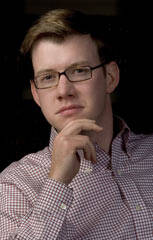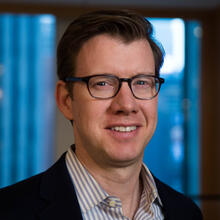I have just returned from a two-week trip to Ireland, where we enjoyed long days and surprisingly sunny weather. It was my fourth trip, but the first time that I visited without seeing an old friend, Father Maurice Reidy, who died last summer.
Yes, Maurice Reidy. No, we weren’t related. Father Maurice met my father in the 1960’s when he was visiting New York. He decided to eat at a Manhattan restaurant that bore his surname, and soon he and my father became fast friends. Maurice was a teacher of moral theology at Holy Cross College, Clonliffe, the archdiocesan seminary in Dublin. He wrote a number of books on medical ethics and spirituality, including The God I Believe In and Why (Columba), which he finished shortly before he died.
I met Maurice when I was just 13. He invited my brother and me to stay with him for three weeks in Dublin and Wexford, where he had a summer home. I felt a special connection with Maurice because we shared the same name. I was named after my grandfather, but since childhood I have been called Tim because my first name is too often mangled by the American tongue. (It’s Maurice as in Morris, not “Maw-reese” as in Chevalier.) In Ireland I met what seemed like a dozen other Maurice Reidys, all related to our host. It was a great thrill for me.
I did not see Maurice again until 2001, when I returned to Ireland on my honeymoon. My wife and I stayed with him at his house outside Dublin, where he prepared a lovely dinner for us. By then he was quite ill, having contracted Wegener’s granulomatosis, a rare and serious vascular disease that left him sapped of energy. Yet he still found time to chat with us about our careers, and we discovered that we had many things in common. He was a great reader, and kept The Tablet within easy reach.
Even though he had known me only as a child, Maurice treated me as an adult, soliciting my opinion on political and religious matters. Before leaving, we pledged to keep in touch by e-mail, and over the next few years we exchanged long letters. Once he was kind enough to offer a critique of an article I had published.
The last time I saw Maurice was in 2004. Knowing that he was ill, we visited him on our way home from a trip to London. His energy was quite low, and he required the use of a cane. Still he relished playing the host, treating us to dinner at an Italian restaurant, encouraging us to order wine and appetizers. Before we said our goodbyes he was clear about his prognosis: he had only a short time left.
Visiting Ireland this June, I was keenly aware of the changes that have come to the land of my great grandparents: prosperity, development and, as many have pointed out, a decline in Catholic vocations and practice. In one Galway town no daily Mass was available because of the priest shortage. A church in Mayo bore a plaque thanking the Christian Brothers for their 100-plus years of service to the community.
I regret I never spoke to Maurice about the changes in the Irish church. Though he was not given to nostalgia, it must have been difficult for him to witness the passing of an era. Clonliffe, the seminary where he taught, was closed shortly after he stopped teaching there. Few young men seemed interested in the life that he had chosen.
But I doubt Maurice dwelt on these matters. I suspect he would have agreed with his bishop, Diarmuid Martin, who believes that the Irish church needs to be more creative in reaching out to a new generation of Catholics (see Father Andrew Greeley’s observations in this issue, page 20). Maurice undertook just this kind of project with his last book. The God I Believe In and Why is based on a series of interviews Maurice conducted. Two of his subjects were committed Catholics; two had left the church. The book is an extended argument for faith, but Maurice does not dictate his beliefs to his subjects; he seeks to persuade them.
Maurice lived longer than the doctors predicted. He died in August, 11 years after his first diagnosis. One of his closest friends told me that he was a man of great trust. He placed his trust in his doctors, in his friends and most of all in his God. Along with Cardinal Newman, a man he deeply admired, he could say: “Therefore, I will trust him.... If I am in sickness, my sickness may serve him; in perplexity, my perplexity may serve him; if I am in sorrow, my sorrow may serve him.... He does nothing in vain.”








